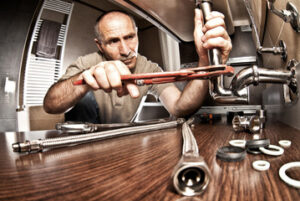Home » Posts tagged 'plumbing contractors'
Tag Archives: plumbing contractors
When to Call an Emergency Plumber
A plumbing problem that leaves you without access to water should be considered an emergency. Especially when it’s something like raw sewage backing up into your home, this poses health risks and can cause further damage to the property if not addressed promptly. When you call an emergency plumber, ensure they are a Master Plumber. Plumbers have the skills and experience to resolve your issue quickly and efficiently.
 Pipe bursts are one of the most dangerous plumbing problems and can cause catastrophic damage to your property. They can lead to flooding, water logging, and even structural damage to your house. However, with a little precaution and quick action, you can reduce the risk of burst pipes in your home.
Pipe bursts are one of the most dangerous plumbing problems and can cause catastrophic damage to your property. They can lead to flooding, water logging, and even structural damage to your house. However, with a little precaution and quick action, you can reduce the risk of burst pipes in your home.
The most common cause of a burst pipe is freezing. When the temperature drops, the water in your pipes will freeze and expand, putting pressure on the pipes until they burst. Another common cause of burst pipes is corrosion. Over time, metal pipes can corrode due to corrosion, which will lead to them cracking and bursting. Finally, clogs are another common cause of burst pipes. Water pipes can become clogged with hair, soap scum, bathroom products and even food. When a clog occurs, it causes undue pressure to build up in the pipes until they burst.
To prevent pipes from bursting, it is important to insulate them. Ensure that any piping in unheated areas, such as those running through your attic, is properly insulated with lagging or foam. Additionally, make sure that all taps in unheated areas are fitted with covers. Finally, if you have outside pipes that run to your garden or garage, they should be buried deep enough and also lagged.
If you notice a burst pipe, there are some things you can do to minimize the damage and wait for a plumber to arrive. The first thing is to shut off the water supply to the affected area. This can be done by finding your home’s main water valve, usually located in the basement or crawl space. Make sure you mark the location of the valve so that everyone in your household knows what to do in case of an emergency.
Once you’ve turned off the water, it’s important to remove any valuables from the flooded area. Water can destroy everything in its path, from furniture to electronics to paper documents. If you have any items that are especially valuable or sentimental, it may be a good idea to call your insurance company and report the damage right away. This way, you can receive a replacement or a fair amount of money for the item(s).
The drains in your home carry water, waste, and other debris away from your sinks, toilets, tubs, and showers. When they become clogged, it can cause a lot of problems. It’s important to know when to call an emergency plumber for clogged drains.
If your drains are completely clogged, you will likely need to shut off the water supply at your house in order to prevent further damage. It’s also a good idea to try using a plunger to clear the clog before calling a plumber. You can also try using chemical products like drain cleaners or hair removers to unclog your drains. However, if you find that nothing is helping and the problem keeps getting worse, it’s time to call an emergency plumber.
Seeing black sludge dripping from your drains is another clear sign that it’s time to call an emergency plumber. This is caused by materials like hair, soap scum, and other debris that build up inside your pipes. These clogs aren’t just messy, but they can also pose a health hazard. They can also cause sewage to back up into your house, which is an extremely dangerous and unpleasant situation.
Clogged toilets are another common plumbing emergency that needs to be addressed immediately. If your toilet can’t flush, it will quickly overflow and cause a big mess. It’s also a major inconvenience not being able to use the bathroom, clean dishes, or take a shower.
If you have a clogged toilet and can’t fix it yourself, turn off the water supply to your home at the main shut-off valve. This will stop any more water from flowing into your toilet and will give you more time to call an emergency plumber. Make sure to turn the water back on after the plumber finishes so you can continue using your bathroom and other fixtures in your home. You can also use Angi to connect with a plumber for help in the event of a plumbing emergency. Angi can send a qualified plumber to your home quickly and will handle all of the details for you.
If your toilet is overflowing, it’s a plumbing emergency that needs to be addressed right away. Not only does the mess it leaves behind require cleanup, but it can also lead to long-term water damage in your walls and baseboards. Overflowing toilets are usually caused by a blockage or an error in the tank float mechanism that regulates water flow.
Luckily, there are some steps you can take before calling emergency plumbers. The first is to shut off the water to your toilet. You’ll find a small water valve near or underneath your toilet, typically an oval-shaped knob. Turning this clockwise will shut off the water, and turning it counterclockwise will restore it.
Next, you’ll want to remove the lid from your toilet tank and reach inside to lift up the float. This is a little hard to do when your toilet is overflowing, but it’s important to try to keep as much of the overflowing water in the bowl as possible. Once you’ve lifted the float, shut off your water supply again.
If the overflow is still happening, you may have a clog further down your pipes. Something might have cleared the p-trap but got caught in a pipe between the trap and the sewer. Or, it could be that tree roots have grown into the sewage line, which is a common problem in older cities.
The good news is that you can usually fix this yourself if you have a drain snake and a plunger. A drain snake is a flexible wire coil that you can insert into your pipes to clear out blockages. It’s not as effective as a plunger, but it can help you get the job done without calling emergency plumbers.
Before you call emergency plumbing, assess the situation to make sure it really is an emergency. Often, a small leak or clogged sink can wait until the morning if you have another bathroom to use in the meantime. In addition, be sure to check your plumber’s credentials before hiring them. Ask friends and neighbors for recommendations, and look at online reviews. Also, be sure to check the plumber’s hourly rate and what additional fees, like mileage or trip charges, they might charge.
Even a small leak can cause significant damage if left unattended. This is why water leaks are considered emergency plumbing, and the best thing you can do is to turn off your water until a plumber arrives. However, if you are worried about the amount of water leaking and want to take preventive measures, then you can use towels, rags, and paper towel to soak up as much of the water as possible and help reduce the damage before a plumber gets there.
Water leaks aren’t always obvious, especially since many of them start out as tiny drops. These drops might not seem like a big deal at first, but over time, they can add up and damage your home’s foundation. They might also result in higher utility bills and encourage the growth of mold and mildew. The best way to catch a leak is to check your water meter often and listen for any noises coming from your pipes.
One of the most common signs that you need emergency plumbing is hearing a constant dripping sound from your toilets or faucets. A dripping faucet can waste up to two ounces of water per minute, and over the course of a year, that can add up to a lot of wasted water. Another sign of a leaking fixture is looking for damp or stained areas on your ceiling and walls.
Leaking water can also be a fire hazard, and if it comes into contact with electrical wiring, you could end up with a faulty outlet or even an electrical short circuit. It can also lead to the growth of mold and mildew, which can be hazardous to your health.
A clogged drain is not usually considered to be a plumbing emergency, unless it’s severe enough that it affects your daily life. A clogged toilet, for example, can be a health hazard and result in the inability to flush or wash your hands. Similarly, a clogged sink can make it difficult to cook meals, clean dishes, or wash clothes.
To fix a clogged drain, try turning off your water and emptying the pipes. You can then attempt to remove any blocked items, and you can also try using a plunger to dislodge the blockage. If the problem persists, then you should call an emergency plumber.



